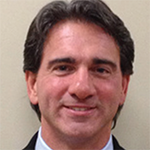Being a better leader doesn’t just happen because you went to medical school and trained for a long time.
That’s the reasoning behind the Leadership Training Program for otolaryngology residents at Vanderbilt University, said Roland D. Eavey, MD, SM, the program founder and director of the Bill Wilkerson Center for Otolaryngology and Communication Sciences at Vanderbilt University in Nashville, Tenn.
“The word ‘doctor,’ in Latin, means ‘leader’ and ‘teacher,’” said Dr. Eavey. “However, in medicine, we need to consider ourselves as leaders and to be leaders, but we receive virtually no training in leadership.” When you finish residency, you head to a medical practice. The nurse manager on the floor likely has an MBA in leadership training, and the pharmacist on the team may have served in the Army, leading hundreds of troops with a multi-million dollar budget, he added. “Why should the brand-new physician automatically be a leader, when his or her colleagues have formal leadership training, and the newly-minted physician merely has an MD?”
Learning Leadership
The Vanderbilt program, which launched in 2009, is a four-year iterative program that offers otolaryngology residents formal study in four areas: military training, public speaking, a micro master’s in business administration, and a capstone final project focusing on community health prevention. The program, the only one of its kind for otolaryngology residents and just one of a handful of residency programs to incorporate leadership skills into any medical specialty, is particularly valid during what Dr. Eavey calls a time of “turbulence” in national health systems, including the implementation of the Affordable Healthcare Act, the move toward value-based care over volume-based care, mergers of health systems and payers, the growth of team care, and many other unpredictable changes. Strong leadership among physicians can help navigate colleagues through these and other changes in the field.
“In healthcare right now, you’re either frightened that the sky is falling in, or you feel that the time is incredibly exciting,” said Dr. Eavey. “The patient before us is not just one suffering individual; the patient also is the entire suffering healthcare system. This is the first time in my career to have the opportunity to make substantial changes in how we practice medicine. Knowing what to prioritize, when to push or not push so hard, how to persuade or encourage—using all the skills in the leadership toolbox. We are now in a turbulent situation, and we need these skills because of the Affordable Healthcare Act.”
Historically, residents “are task trained to cut out tissue and look at audiograms in people who have already become ill,” said Dr. Eavey. “We should be trying to prevent populations of people from getting sick in the first place. We are just whetting the whistles of residents at the beginning of their careers so that they can decide if they wish to further devote themselves to serious training in leadership as some already do for advanced clinical training in fellowships.”
Even those in mid-career can benefit from additional training, he added. “For faculty, they need to learn how to come to grips with the fact that they might be struggling because they don’t understand reimbursement changes that come with the Affordable Care Act or understand what to do with the concept of population health,” he said. While some may opt to earn a formal degree in leadership, there are many different courses and literature available that can help physicians understand exactly how to work with healthcare changes. In his department at Vanderbilt over the last five years, Dr. Eavey said that six faculty/staff members have matriculated for an MBA equivalent in healthcare management, two have earned master of public health (MPH) degrees, one has earned a master’s degree in technology transfer, one has earned a doctorate of education, one has earned a doctor of nursing practice degree, and several more individuals are expected to earn other formal degrees. Others have opted for shorter courses in business, decision making, public health, and quality to help physicians understand how to work with and lead healthcare changes.
“There are skills they can get that they will need in the future,” he said. In the past, he added, doctors often looked at the end of their residency as a time when they’d join a practice and their career management would reach a steady state. “But we are now experiencing that there is no longer a steady state: There will be a need for supplemental skills,” he said. “They will help you as you move forward, and you’ll be training and refreshing for the rest of your life.”
Volunteering for Change
For others, taking on leadership roles in professional organizations offers a chance to polish managerial skills while helping to give back to the profession. Stacey Ishman, MD, MPH, surgical director of the Upper Airway Center and an associate professor of otolaryngology-head and neck surgery at the Cincinnati Children’s Hospital Medical Center at the University of Cincinnati in Ohio, has held numerous positions for a variety of associations, including the International Surgical Sleep Society, the American Society of Pediatric Otolaryngology, and the American Academy of Otolaryngology-Head and Neck Surgery (AAO-HNS), for which she is currently a nominee for the board of governor’s chair.
 I had inadequate knowledge of many things before assuming a leadership position. Doing so gives you a different appreciation of what you do day to day, a better understanding of the issues of bringing new technology to clinicians, coding, and reimbursement at the governmental and payer level. —John M. DelGaudio
I had inadequate knowledge of many things before assuming a leadership position. Doing so gives you a different appreciation of what you do day to day, a better understanding of the issues of bringing new technology to clinicians, coding, and reimbursement at the governmental and payer level. —John M. DelGaudio“I think leadership is very important in terms of advocacy,” said Dr. Ishman, who cited others in the AAO-HNS who are working on determining fair rates for reimbursement. “There are a number of legislative issues where we are making sure we retain funding for research, and those kinds of opportunities require people who are willing to jump in and talk to their legislators and organize things at the Academy level. If you have strong leadership, you don’t need every member to do it. But others are working very hard to make sure we are effectively interacting with insurers and policy makers, to make sure the people who are doing the work are getting paid.”
Volunteering doesn’t mean taking on a project without learning how to do it, either. John M. DelGaudio, MD, chief of rhinology and sinus surgery and professor of otolaryngology-head and neck surgery at Emory University in Atlanta, is in the midst of climbing a four-year ladder: After being on the board of directors of the American Rhinologic Society for years, he was elected second vice president and is now spending this year as the first vice president. Next year, he will be president-elect, and the year after, president. “It’s a nice way to get ramped up before you have significant responsibility,” he said. This process has helped him learn the ins and outs of the specialty and given him insight into how various issues dealing with healthcare, finance, and reimbursement are all handled. “I had inadequate knowledge of many things before assuming a leadership position,” he said. “Doing so gives you a different appreciation of what you do day to day, a better understanding of the issues of bringing new technology to clinicians, coding, and reimbursement at the governmental and payer level.”
When you learn people have problems with reimbursement or bundling, “it opens your eyes to what is happening in your state,” he added. “We’re so busy as clinicians, seeing patients and managing offices, that a lot of this stuff goes unrecognized.”
Dr. DelGaudio emphasized the positives of getting involved as a leader in a professional society. “You have to get involved in order to make a difference,” he said. “If you aren’t, you aren’t as familiar as you think you are about coding, procedures, and how technology is approved. If you’re not involved, you’re not aware of how you can change it.”
Dr. Ishman agreed. “The Board of Governors [BOG] is always looking for people to help,” she said. “You don’t need a title or a position, you just need the interest. It’s as easy as showing up at your local ENT society or at a BOG meeting and volunteering and saying you are interested. The society staff are really great resources for those who get involved.”
Cheryl Alkon is a freelance medical writer based in Massachusetts.
